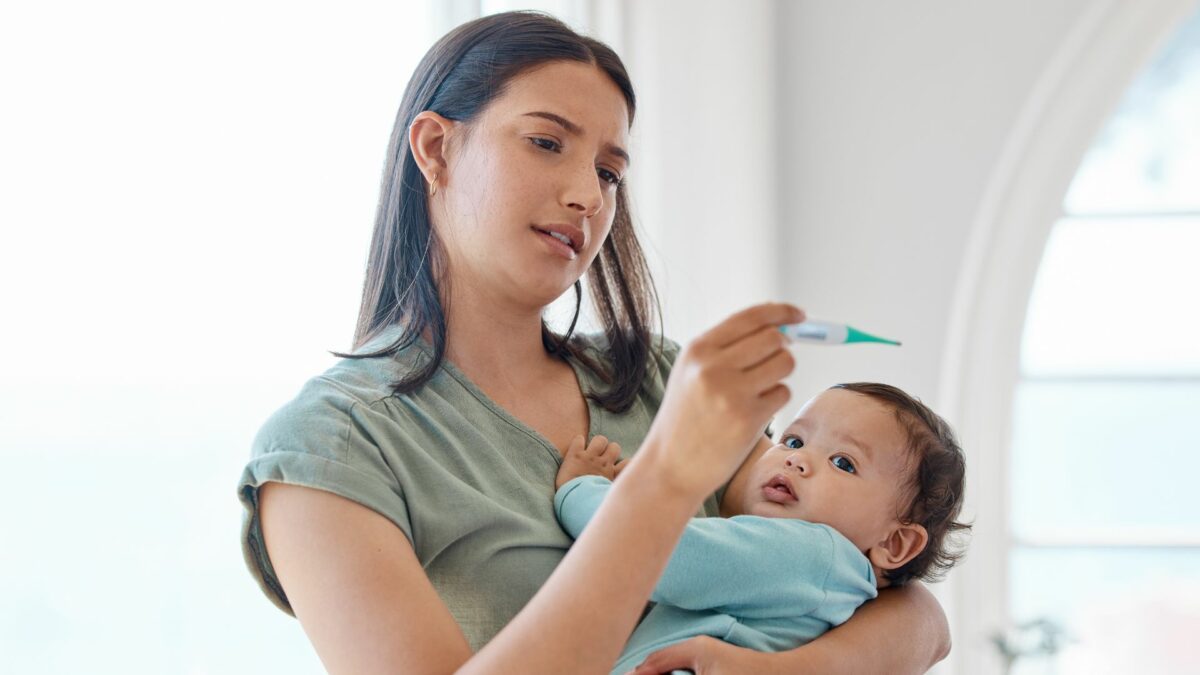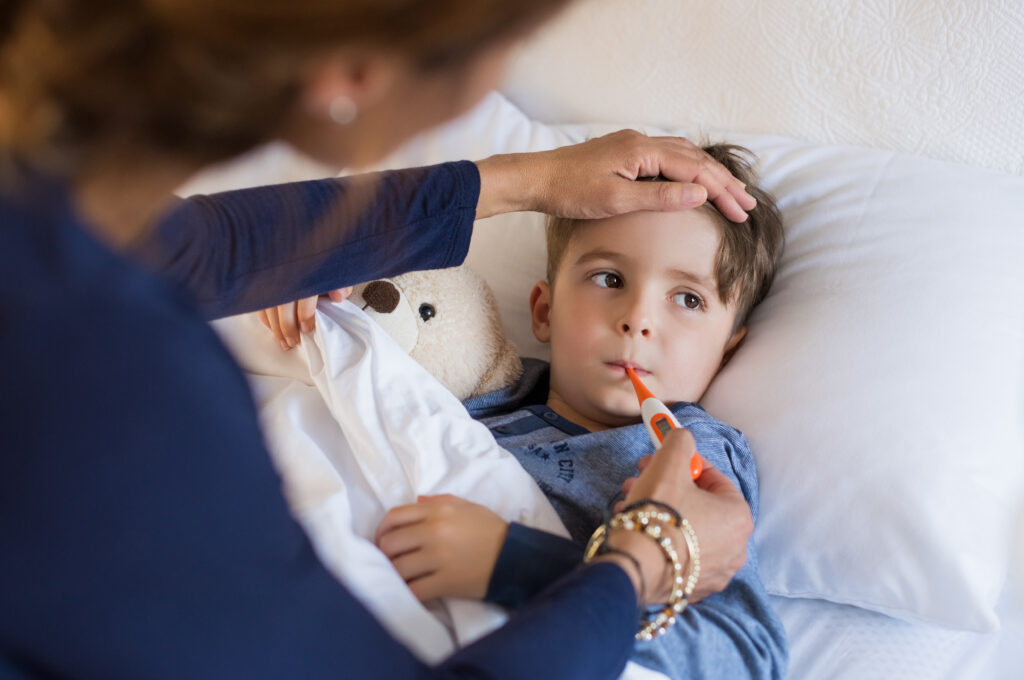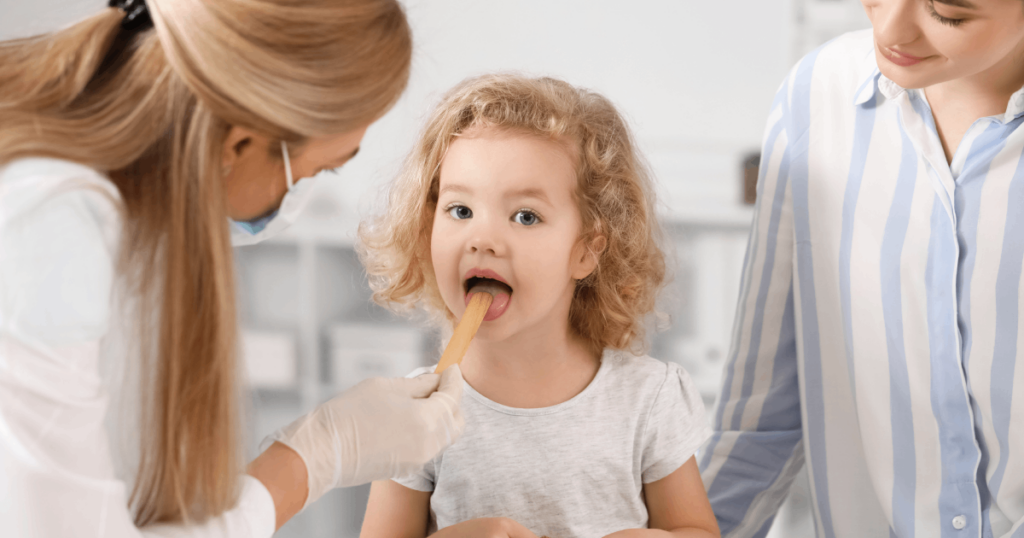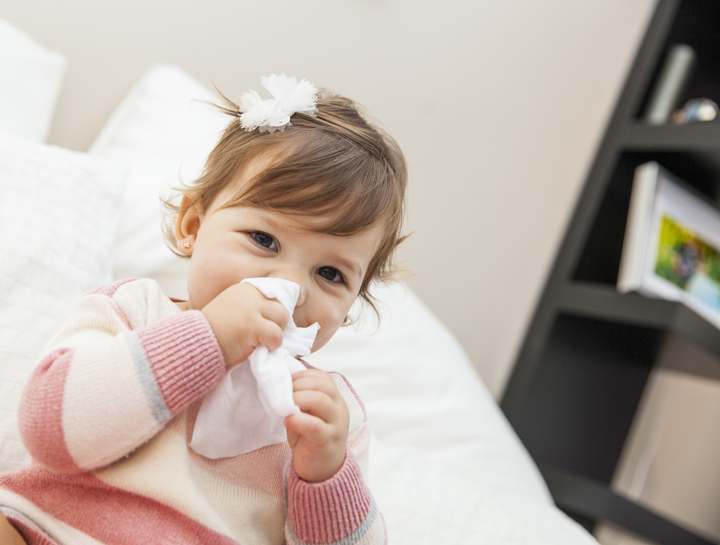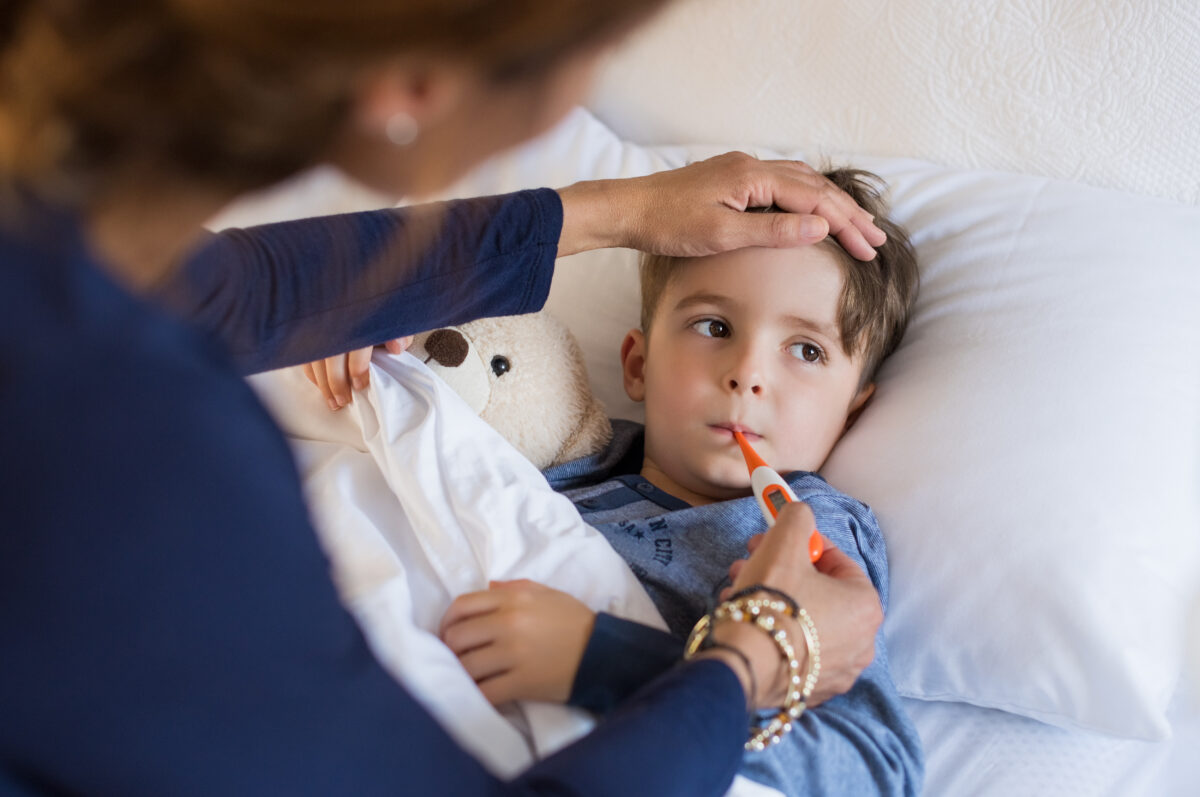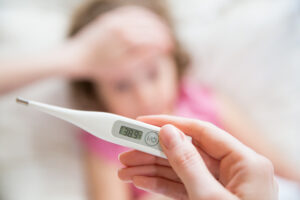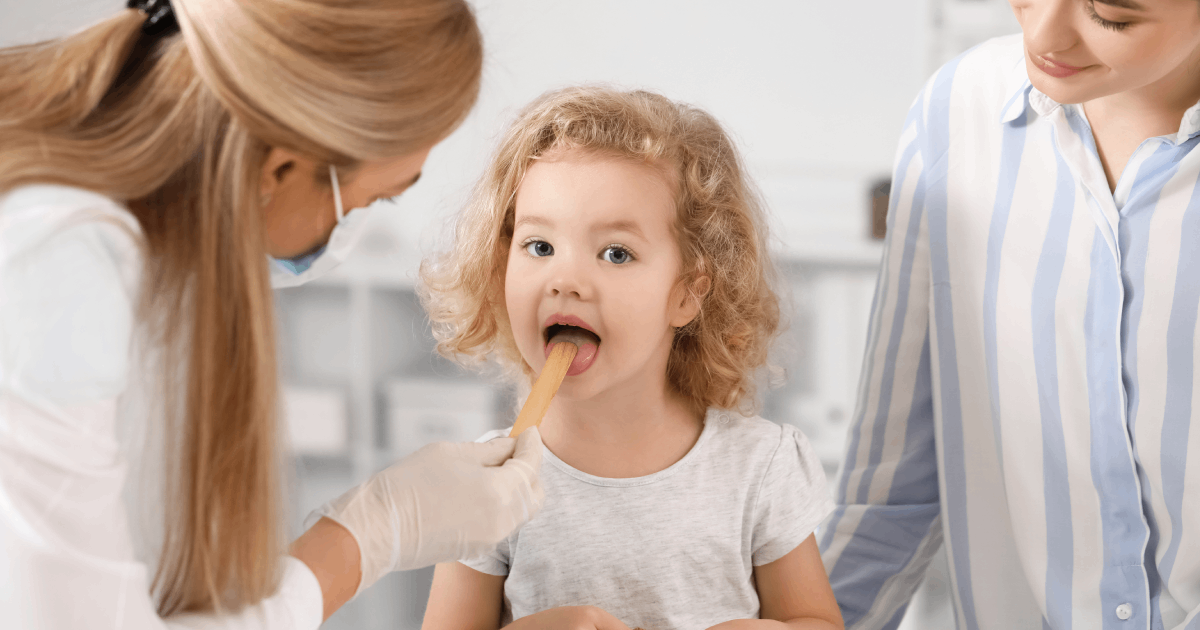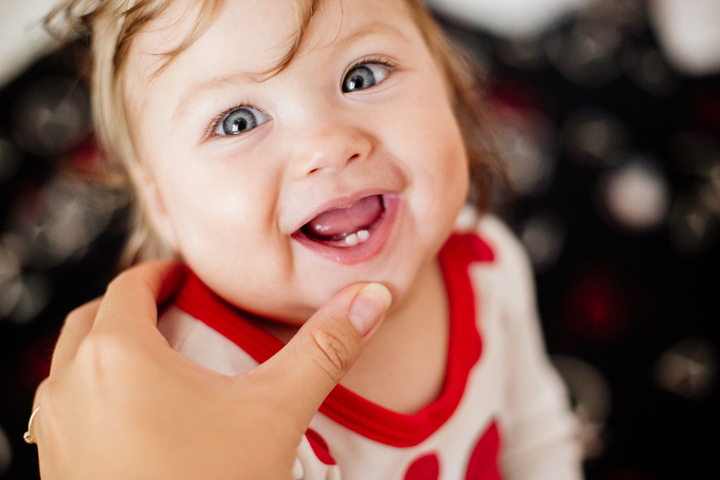Fever in Babies

A fever is the body’s natural response to an illness or infection and is a sign that the body is working hard to make itself better. A high temperature is just one way the body tries to fight off an infection – by raising the temperature it makes it harder for the infection to survive and helps activate the body’s immune system.
Fever in babies is common. This is because a baby’s immune system is still developing and hasn’t had time to build up its defences against the many viruses and bacteria that are all around us. Your baby may get a fever, for example, when they have an infection caused by a virus (like a cold) or a bacteria (such as an ear infection). Infections can happen quite often with some babies and toddlers having as many as 8-10 colds a year before they turn 2 years old!
A fever doesn’t necessarily mean that your baby has a serious illness – but a high temperature does let you know they are sick and need extra care and attention.
Baby’s Fever Temperature

A fever is when your baby’s body temperature is higher than 38°C – but how do you know if they have a fever?
- One indication that your baby may have a fever is that their skin may appear red and flushed or they feel hot to the touch
- You can use a thermometer to check if your baby has a fever.
The best way to measure your child’s temperature depends on their age and the type of thermometer you have:
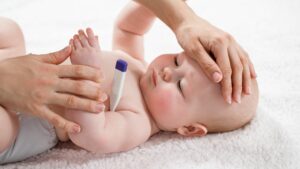
- Using a digital thermometer placed under the armpit is the preferred way for measuring a baby’s temperature if they are under 3 months of age

- If your baby is older and their ear canals are not too small for the ear probe – then an ear thermometer can be used

- Infrared forehead thermometers are quick and easy to use – but can be inaccurate.
If you are not sure, talk to your doctor, pharmacist or Maternal and Child Health Nurse, they will be able to show you the correct way to use your thermometer and answer any questions.
LEARN more about Baby temperature ranges
Fever Symptoms in Babies
While a high temperature can be worrying – it’s important to watch out for other symptoms that may appear at the same time that may be linked to the high temperature or the illness causing the fever.
You may notice a range of baby ‘fever’ symptoms such as:
- Feeling unwell or uncomfortable
- Hot to the touch
- Irritable or cry more than normal
- More sleepy than usual
- Vomiting
- Refusing to drink
- Feeling chills and shivering
- In pain
Ways to Manage Fever in Babies

When your baby has a fever there are a few simple things you can do to help them to feel more comfortable and manage the fever, including:
- Making sure they don’t become dehydrated if they don’t feel like eating or drinking:
- For babies younger than 6 months, offer extra breastfeeds or the usual amount of formula (if bottle-fed)
- For babies older than 6 months, keep breastfeeding or bottle-feeding, but you can also offer them water or an age-appropriate oral rehydration solution.
- Wiping their forehead with a damp sponge or cloth can help to cool them down (use slightly warm water to wet the sponge or cloth). Cold baths or showers are not recommended.
- Keeping the room at a comfortable temperature.
- Dress them in light clothing and cover them with a sheet if they are shivering or add another layer of clothing.
- Using age-appropriate pain-relieving medications that are easy to give – such as Dymadon for Babies – such as Dymadon for Babies – help reduce the fever if it is making your baby feel miserable or can help relieve painful symptoms of colds and flu such as a sore throat. Always remember to carefully follow the dosage instructions on the packaging.
When to Seek Help

While a high temperature doesn’t necessarily mean that your baby has a serious illness – it’s important to know when to seek medical advice:
- It may be hard to tell if the fever is caused by a serious illness in young babies – so if your baby is under 3 months old and has a temperature above 38°C you should see your GP or take them to the hospital emergency department immediately, even if your baby has no other obvious symptoms of being ill.
- If your baby is 3-12 months old and has a fever – then a high temperature may be a sign of an illness and you should see your GP to get things checked out.
Some symptoms require urgent medical attention – whatever the child’s age – and these include:
- Being listless or not responding to you
- Losing consciousness or having a fit (seizure) for the first time
- Having difficulty breathing.
ALWAYS READ THE LABEL AND FOLLOW THE DIRECTIONS FOR USE. INCORRECT USE COULD BE HARMFUL.
